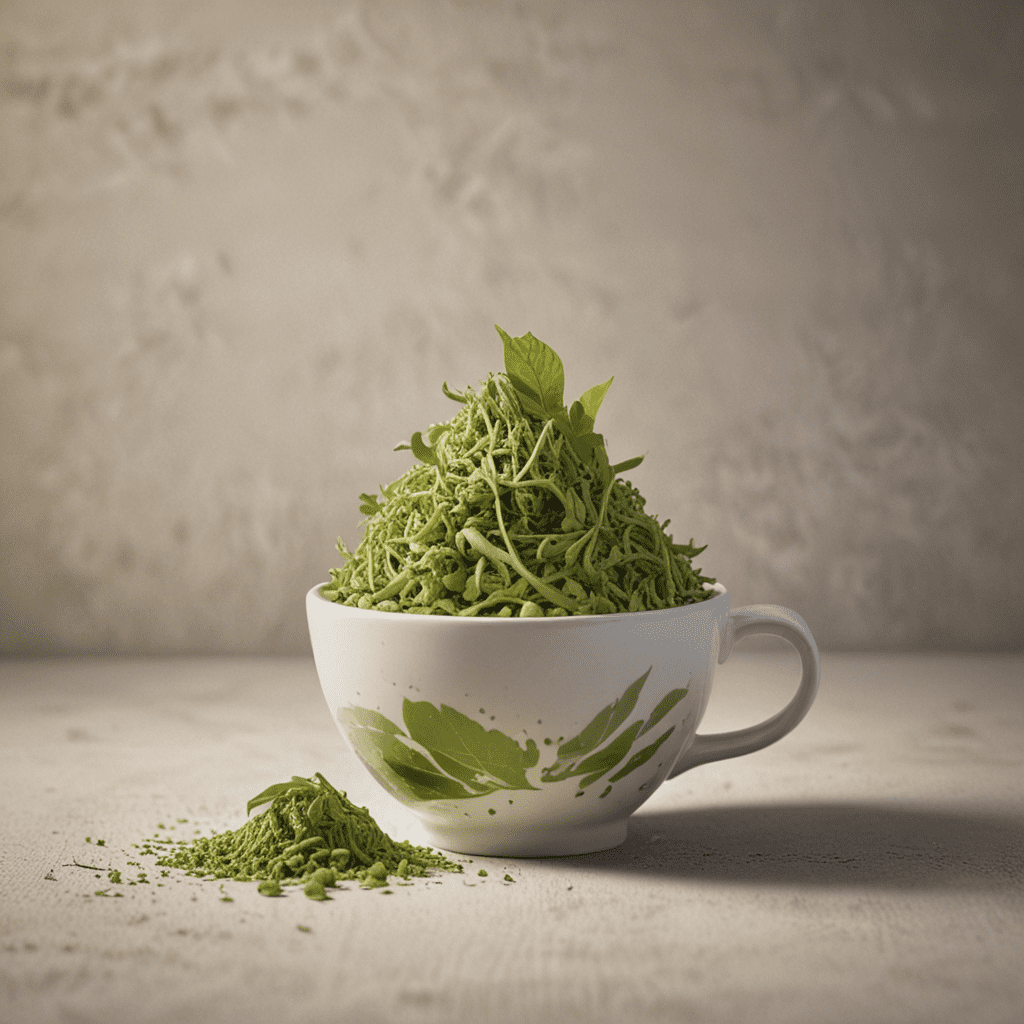
1. Introduction: Unveiling Matcha's Promise for Brain Health
Matcha, a vibrant green tea powder, has long been revered for its exceptional health benefits. Recent scientific discoveries have shed light on matcha's extraordinary potential for enhancing brain health. This article delves into the compelling evidence supporting matcha's role as a cognitive powerhouse, exploring its intricate mechanisms of action and its implications for brain health.
2. Composition of Matcha: A Rich Arsenal of Cognitive Enhancers
Matcha's exceptional brain-boosting properties stem from its unique composition, which boasts a symphony of compounds with neuroprotective and cognitive-enhancing effects. Catechins, particularly epigallocatechin gallate (EGCG), are potent antioxidants that shield the brain from oxidative stress. L-theanine, an amino acid, promotes relaxation and focus, while caffeine provides a gentle energy boost. This synergistic blend of compounds orchestrates a multifaceted approach to optimizing brain function.
3. Matcha's Role as an Antioxidant Shield: Protecting Against Oxidative Stress
Oxidative stress, an imbalance between free radicals and antioxidants, can wreak havoc on brain cells. Matcha, armed with its arsenal of antioxidants, gallantly combats this threat. Catechins neutralize free radicals, preventing them from damaging brain tissue. Studies have demonstrated that matcha's antioxidant prowess may mitigate cognitive decline and reduce the risk of neurodegenerative diseases.
4. Enhanced Brain Function with L-Theanine: A Relaxing Boost
L-theanine, a unique amino acid found in matcha, plays a pivotal role in modulating brain activity. It promotes relaxation without inducing drowsiness, increasing alertness and improving cognitive performance. By enhancing alpha brain wave activity, L-theanine facilitates a state of focused calm, ideal for learning and creative pursuits.
5. Cognitive Improvement through Caffeine Stimulation: A Controlled Jolt
Caffeine, a venerable stimulant, is present in matcha in moderate amounts, providing a controlled energy boost without the jitters associated with excessive caffeine consumption. Caffeine enhances alertness, improves reaction times, and boosts cognitive performance. Matcha's carefully balanced caffeine content allows for sustained mental focus without overstimulation.
6. Memory Enhancement: Matcha's Contribution to Cognitive Reserves
Matcha's multifaceted benefits extend to memory enhancement, a critical aspect of cognitive health. Catechins, particularly EGCG, have been shown to promote neurogenesis, the formation of new brain cells, in the hippocampus, a brain region crucial for memory. Additionally, L-theanine's calming effects may reduce stress-induced memory impairment, further contributing to matcha's memory-boosting prowess.
7. Neuroprotection Against Age-Related Decline: Matcha's Promise for Aging Brains
As we age, our brains naturally experience a decline in cognitive function. Matcha, with its arsenal of neuroprotective compounds, offers hope for mitigating age-related cognitive decline. Antioxidants combat oxidative stress, while L-theanine's stress-reducing properties protect against neuroinflammation. Together, these compounds may slow down the progression of cognitive impairment and preserve brain health in older adults.
8. Matcha Consumption and Mood Regulation: A Path to Emotional Well-being
Matcha's cognitive benefits extend beyond pure cognition, reaching into the realm of emotional well-being. L-theanine, with its calming and mood-boosting effects, has been shown to reduce stress, anxiety, and depression. By promoting relaxation and emotional balance, matcha can enhance overall mental health and well-being.
9. Potential Applications of Matcha in Cognitive Disorders: Exploring Therapeutic Horizons
Matcha's promise for brain health extends to potential therapeutic applications in cognitive disorders. Research suggests that matcha may alleviate symptoms of neurodegenerative diseases such as Alzheimer's and Parkinson's. Catechins' antioxidant properties may protect against neuroinflammation and cell death, while L-theanine's calming effects may reduce agitation and behavioral problems associated with these conditions.
10. Future Directions and Research Needs: Delving into Matcha's Cognitive Potential
While substantial evidence supports matcha's cognitive benefits, further research is warranted to fully elucidate its potential. Future studies should explore matcha's long-term effects, optimal dosage, and synergistic interactions with other brain-boosting compounds. By deepening our understanding of matcha's cognitive prowess, we can harness its power to promote brain health and well-being throughout life.
Frequently Asked Questions (FAQs)
Q: How much matcha should I consume daily for cognitive benefits?
A: While scientific evidence is still emerging, moderate consumption of 1-2 cups of matcha tea per day may provide cognitive benefits.
Q: Is matcha safe for everyone to consume?
A: Generally, matcha is safe for most people. However, individuals with certain health conditions, such as severe liver disease or caffeine sensitivity, should consult with a healthcare professional before consuming matcha.
Q: Can I take matcha supplements instead of drinking matcha tea?
A: Matcha supplements may provide some benefits, but they are not a substitute for consuming whole matcha tea. Matcha tea contains a complex array of compounds that work synergistically to enhance cognitive function.


